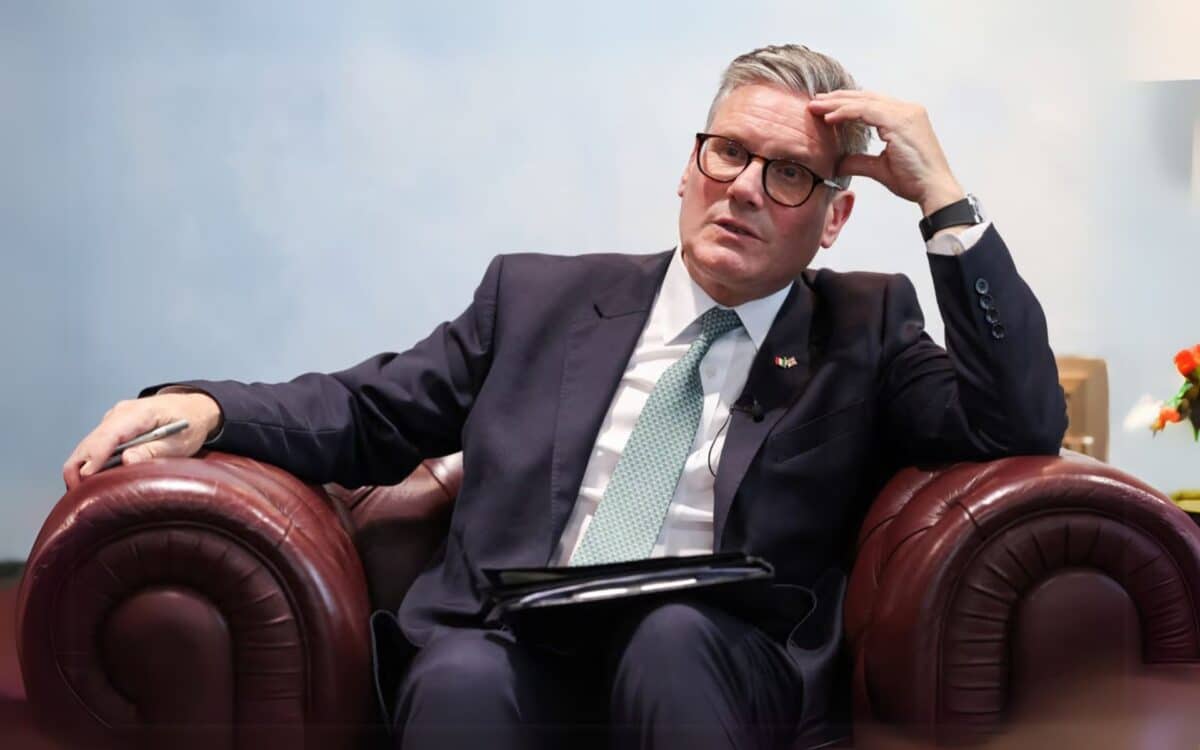Keir Starmer is facing renewed political attention following new data on Channel migrant crossings. The figures, reported by GB News, suggest an upward trend that surpasses those under previous administrations.
Questions are emerging around the government’s approach to enforcement and deterrence since taking office. While the Prime Minister has publicly reaffirmed his commitment to dismantling smuggling networks, recent developments are fueling debate over the effectiveness of his current strategy.
With critics and officials offering competing interpretations of the situation, the issue is rapidly becoming a focal point of wider political and diplomatic concern both at home and abroad.
Channel Crossings Reach Nearly 30,000 Since General Election
Between Labour’s electoral victory and March 29, a total of 29,884 asylum seekers arrived in the United Kingdom via small boats crossing the Channel. The figure averages just over 780 per week, compared to 570 under Rishi Sunak and 400 under Boris Johnson, according to recent data.
Upon entering 10 Downing Street, Keir Starmer had pledged to “smash the gangs” behind these dangerous journeys. Yet, his government swiftly discontinued the Rwanda relocation scheme, a key element of the Conservative government’s deterrence policy.
Shadow Home Secretary Chris Philp linked the rise directly to that policy reversal.
“Today’s conference will make no difference. Law enforcement alone cannot stop illegal immigration – you need a removals deterrent – he said.
The Rwanda plan, introduced under Boris Johnson and maintained by Rishi Sunak, aimed to deport some asylum seekers to Rwanda in order to discourage irregular crossings. Critics of its cancellation argue that the removal of a clear deterrent has incentivized smugglers and would-be migrants alike.
Home Office Emphasizes Enforcement and International Action
In response, a Home Office spokesperson said:
We all want to end dangerous small boat crossings, which threaten lives and undermine our border security.
They continued:
The people-smuggling gangs do not care if the vulnerable people they exploit live or die, as long as they pay, and we will stop at nothing to dismantle their business models and bring them to justice.
The spokesperson pointed to the UK’s recent hosting of the Organised Immigration Crime Summit, which brought together representatives from 40 countries.
That’s why the UK is hosted the landmark Organised Immigration Crime Summit, bringing together 40 countries to dismantle people-smuggling gangs.
This adds to our action to strengthen enforcement powers, ramp up returns to their highest levels for more than half a decade, and crack down on illegal working – the statement added.
The migration issue arises during a month dubbed “awful April”, as households face a series of financial burdens. Council tax, energy bills, water tariffs, car tax, broadband, stamp duty, and the TV licence fee all increase starting today, tightening the financial outlook for millions.
While not directly linked to migration policy, these changes compound public unease and increase political pressure on the government.
us-uk relations strained by free speech dispute
Prime Minister Starmer also encountered pushback from Washington as he sought to avoid new US tariffs. His appeal to the White House was rejected by President Donald Trump, amid growing tensions around a UK legal case.
The US State Department issued a statement expressing that it was “concerned about freedom of expression in the United Kingdom,” particularly in relation to the prosecution of Livia Tossici-Bolt, who was charged after standing outside a Bournemouth abortion clinic with a sign reading: “Here to talk if you want.”
A source quoted by The Telegraph said that
There should be no free trade without free speech.
The State Department added that it was “monitoring” the case, which is expected to return a verdict by the end of the week.
The intersection of record-high migration figures, domestic economic strain, and international diplomatic criticism presents a complex challenge for Starmer’s administration.
While the government promotes multilateral cooperation and enhanced enforcement as its core strategy, critics remain skeptical about the absence of a concrete deterrent.
With scrutiny rising from both domestic and foreign observers, the Prime Minister’s approach to migration, civil liberties, and international trade will remain in sharp focus in the weeks ahead.









